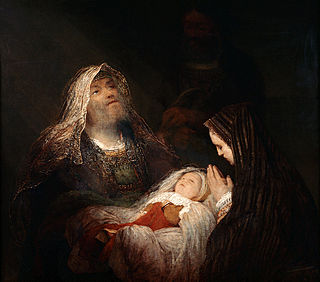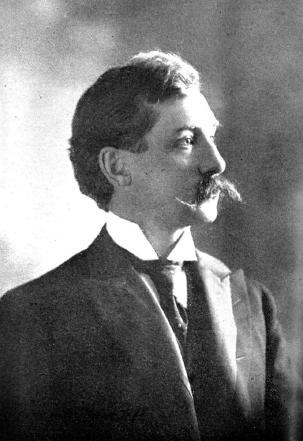Related Research Articles

Scouting in Wyoming has a long history, from the 1910s to the present day, serving thousands of youth in programs that suit the environment in which they live.

The Serenade for Tenor, Horn and Strings, Op. 31, is a song cycle written in 1943 by Benjamin Britten for tenor, solo horn and a string orchestra. Composed during the Second World War at the request of the horn player Dennis Brain, it is a setting of a selection of six poems by English poets on the subject of night, including both its calm and its sinister aspects. The poets Britten chose to set for the Serenade range from an anonymous 15th-century writer to poets from the 17th, 18th and 19th centuries.
"Hector the Hero" is a classic lament penned by Scottish composer and fiddler James Scott Skinner in 1903. It was written as a tribute to Major-General Hector MacDonald, a distinguished Scottish general around the turn of the century. MacDonald, a friend of Skinner's, had not long before committed suicide following accusations of having sexual relations with teenage boys.

The Nunc dimittis, also known as the Song of Simeon or the Canticle of Simeon, is a canticle taken from the second chapter of the Gospel of Luke, verses 29 through 32. Its Latin name comes from its incipit, the opening words, of the Vulgate translation of the passage, meaning "Now you let depart". Since the 4th century it has been used in services of evening worship such as Compline, Vespers, and Evensong.
"On, Wisconsin!" is the fight song of the Wisconsin Badgers at the University of Wisconsin–Madison. A version with modified lyrics is the official state song of Wisconsin.

"Hail! Minnesota" is the regional anthem of the U.S. state of Minnesota. A variation is used as a school song of the University of Minnesota. It originated at the university in the early 20th century when some students decided to honor their graduating class with a new song. In 1945, the Minnesota State Legislature approved the tune as the state song.
"Alabama" is the regional anthem of the U.S. state of Alabama; it was adopted as the official state song in 1931.

Robert Stanley Weir was a Montreal, Quebec judge and poet most famous for writing the English lyrics to "O Canada", the national anthem of Canada. He was educated as a teacher and lawyer and considered one of the leading experts of the day on Quebec's municipal civil law. He was appointed a municipal court judge and a judge for the Exchequer Court of Canada.

Fenimore Chatterton was an American businessman, politician, and lawyer. He was the sixth Governor of Wyoming from April 28, 1903 until January 2, 1905.
"How Great Thou Art" is a Christian hymn based on an original Swedish hymn entitled "O Store Gud" written in 1885 by Carl Boberg (1859–1940). The English version of the hymn and its title are a loose translation by the English missionary Stuart K. Hine from 1949. The hymn was popularised by George Beverly Shea and Cliff Barrows during the Billy Graham crusades. It was voted the British public's favourite hymn by BBC's Songs of Praise. "How Great Thou Art" was ranked second on a list of the favourite hymns of all time in a survey by Christianity Today magazine in 2001 and in a country wide poll by Songs Of Praise in 2019.

Charles Edwin Winter was an American attorney, politician, and author who served as a member of the United States House of Representatives for Wyoming's at-large congressional district from 1923 to 1929.

The alma mater of the University of Pittsburgh was adopted soon after the University changed its name in 1908 from the Western University of Pennsylvania to its current moniker. Lyrics were written by George M. P. Baird, class of 1909 and were set to the tune of what was then the Austrian National Anthem. A new tune for the "Alma Mater" hymn was composed by Charles W. Scovel, class of 1883, but it was not widely adopted and was either lost or became obscure.
The River is a song written by the English composer Edward Elgar in 1909 as his Op.60, No.2.
Coronation Ode, Op. 44 is a work composed by Edward Elgar for soprano, alto, tenor and bass soloists, chorus and orchestra, with words by A. C. Benson.
Great Is Thy Faithfulness is a popular Christian hymn written by Thomas Chisholm (1866–1960) with music composed by William M. Runyan (1870–1957) in Baldwin City, Kansas, U.S.

Psalm 44 is the 44th psalm of the Book of Psalms, beginning in English in the King James Version: "We have heard with our ears, O God, our fathers have told us". In the slightly different numbering system used in the Greek Septuagint version of the bible, and generally in its Latin translations, this psalm is Psalm 43. In the Vulgate, it begins "Deus auribus nostris audivimus patres nostri adnuntiaverunt". The psalm was composed by the sons of Korah and is classified in the series of lamentations of the people.

"Heimliche Aufforderung", Op. 27, No. 3, is one of a set of four songs composed for voice and piano by Richard Strauss in 1894. The German conductor Robert Heger orchestrated it in 1929. The text is from a poem in German by John Henry Mackay.

"Sonnet X", also known by its opening words as "Death Be Not Proud", is a fourteen-line poem, or sonnet, by English poet John Donne (1572–1631), one of the leading figures in the metaphysical poets group of seventeenth-century English literature. Written between February and August 1609, it was first published posthumously in 1633.

A general election was held in the U.S. state of Wyoming on Tuesday, November 8, 1904. Two special elections were held: one for Governor and one for State Treasurer. In the gubernatorial election, acting Governor Fenimore Chatterton ran for re-election but was defeated for renomination at the Republican convention by Bryant B. Brooks, who won the subsequent special election over Democrat John E. Osborne. In the special election for State Treasurer, Republican William C. Irvine, who was appointed to the office by Governor Chatterton, successfully won re-election.
References
- ↑ "Wyoming Facts and Symbols: State Song". State of Wyoming. Retrieved 26 March 2015.
- ↑ "Interesting Facts Incident to the Writing of the Song 'Wyoming'", by Charles E. Winter, Biennial Report of the State Historian of the State of Wyoming, Wyoming Historical Department (September 30, 1920), pps. 172–174; OCLC 1770253
- ↑ "Grand Encampment Herald" (PDF). Grand Encampment Herald. Oct 26, 1903. Retrieved 31 October 2012.
- ↑ "Wyoming's State Song" (PDF). Wyoming Library Roundup. Retrieved October 30, 2012.
- ↑ Treasures of Pioneer History, by Kate B. Carter (Wyoming is in Vol. 4 of 6), Salt Lake City: Daughters of Utah Pioneers (1952–1957), pg. 155; OCLC 4008835